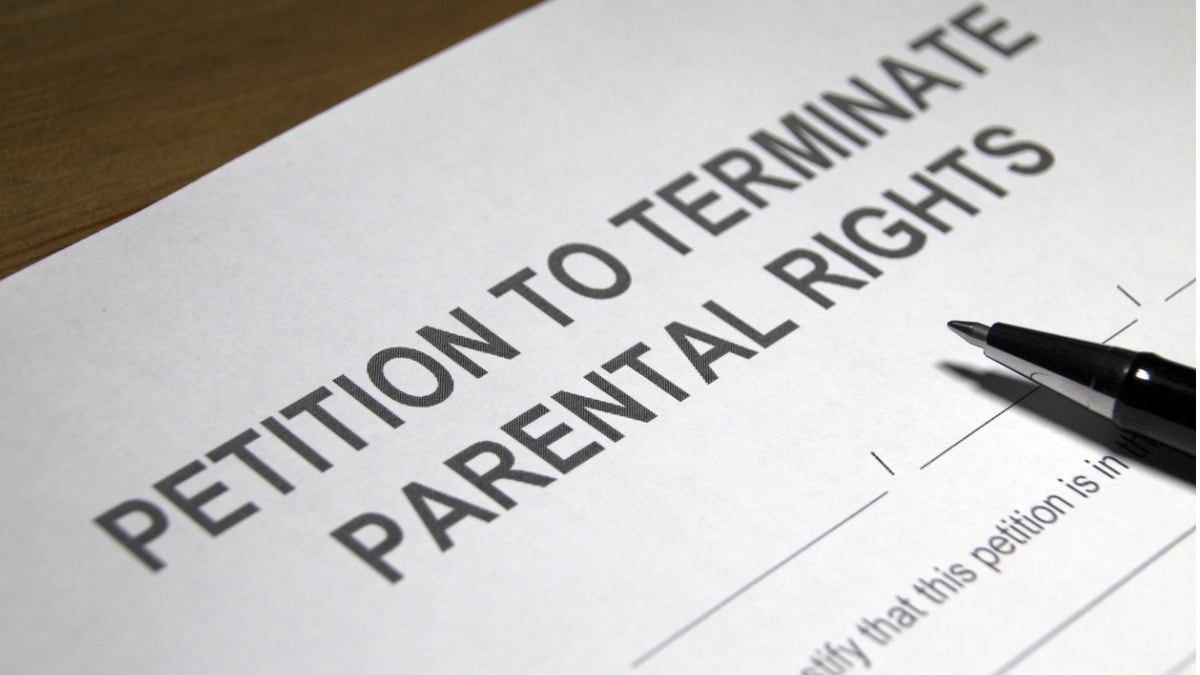Last Updated on June 6, 2023
Terminating parental rights can take anywhere from several months to years, depending on the specific circumstances of each case. Termination of parental rights is a legal process that permanently ends the parent-child relationship.
This can occur voluntarily or involuntarily by court order and is typically done to protect the child from abuse, neglect, or abandonment. The duration of the termination process varies from state to state, and it often involves multiple steps, such as filing a petition, attending hearings, and providing evidence.
The timing of the termination also depends on factors such as the willingness of the non-custodial parent to cooperate, the complexity of the case, and the availability of court resources. In some cases, the process can take several months, while in others, it can take several years. It is essential to consult with an experienced family law attorney to understand the timeframe and legal requirements for terminating parental rights.

Credit: talkingparents.com
How Long Does It Take To Terminate Parental Rights: Factors That Influence The Timeline
The process of terminating parental rights is complicated, and there are numerous factors that determine the duration of the proceedings. It is imperative to understand these factors in advance to avoid any surprises and prepare yourself accordingly. Below are some of the essential factors that influence the timeline.
Importance Of Considering The Evidence Presented In Court
The process of terminating parental rights is lengthy because judges need to be convinced that it is in the best interest of the child. The evidence presented in court plays a crucial role in the decision-making process. The better prepared you are, the smoother and quicker the proceedings will be.
• provide valid proof that the parent in question is neglecting their child.
• it is crucial to show evidence of substance abuse, mental instability, or any harmful behaviour towards the child.
• ensure you have evidence of failure to obey court orders or lack of contact with the child.
The Complexity Of The Case
The more complicated the case, the longer it takes to reach a judicial decision. For instance, if the termination of rights will result in adoption, the court must investigate and evaluate the potential adoptive family carefully. This process can be slow, leading to delays in a final decision.
Some cases may also require the court to involve multiple experts such as psychologists, social workers, or medical professionals. This can substantially drag out the judicial process, delaying any potential decisions.
Involvement Of Multiple Jurisdictions
Termination of parental rights proceedings might involve multiple jurisdictions, especially if the child lives in different states. Some states take longer to process and handle termination of parental rights cases. Such delays can substantially influence the timeline of the proceedings, even in a reasonably straightforward case.
Communication could be challenging between courts from different states, and it may take an extended period to get a final decision.
Cooperation Between The Parties Involved
In any custody battle or termination of parental rights cases, cooperation between parties is crucial. If the parties involved are not cooperative, the proceedings could take longer than expected. If you are the party pursuing termination, make sure to follow all court orders and provide all necessary documentation, or this will drag out the process.
Availability Of Legal Representation
The process involved in terminating parental rights is complex and can be challenging to navigate without an excellent legal expert to guide you. If you do not have legal representation, it may take longer to prepare for your case and potentially delay any final decisions.
The process of terminating parental rights can be lengthy and complicated. Do your due diligence, provide accurate evidence, be cooperative, have legal representation, and understand all the legalities surrounding your case. This way, you will avoid any unnecessary delays and streamline the proceedings as much as possible.
The Procedure Of Termination Of Parental Rights: A Comprehensive Outlook
Terminating parental rights is a serious decision that should not be taken lightly. It can be a lengthy and complicated process, and the court’s primary concern is the well-being of the child. We will take a comprehensive look at the procedure for terminating parental rights, including the grounds for termination, the process for filing a petition, and court proceedings.
So, let’s dive in!
Grounds For Termination Of Parental Rights
Terminating parental rights is not something that courts take lightly. It can only be done in cases where the child’s well-being is in danger. The most common grounds for termination of parental rights include:
- Abuse or neglect of the child
- Abandonment of the child
- Failure to support the child financially or emotionally
- Unfit or incapable of fulfilling parental responsibilities
- Felony conviction of child abuse or neglect
The Process Of Filing A Petition For Termination Of Parental Rights
The process of terminating parental rights usually begins with filing a petition with the court. The petitioner may be a state agency or an individual with standing, such as a stepparent or relative. The petition should include detailed information about why the petitioner is seeking to terminate parental rights, including any evidence of abuse or neglect.
Once the petition has been filed, a court hearing will be scheduled, and the respondent will be notified. The respondent has the right to hire an attorney and contest the petition. If the court agrees that there are grounds for termination of parental rights, the case will proceed to trial.
During the trial, the petitioner must prove that the grounds for termination exist, and that it is in the best interests of the child to terminate parental rights. The respondent may present a defense, and the court will make a final decision based on the evidence presented.
Court Proceedings
Court proceedings for termination of parental rights can be emotional and complex, as they involve the well-being of a child. During the proceedings, the judge will consider the best interests of the child and will base their decision on what is most beneficial to the child.
In addition to evidence of abuse or neglect, the judge may consider other factors, such as the child’s age, living arrangements, and primary caregiver, as well as the bond between the child and the parent. If the court agrees that parental rights should be terminated, custody will be granted to the state or another party.
Terminating parental rights is a serious matter that requires careful consideration and legal proceedings. The grounds for termination of parental rights and the process for filing a petition and court proceedings are complex, but the ultimate goal is to ensure the safety and well-being of the child.
Time Factors Involved In Termination Of Parental Rights
Termination of parental rights is a legal process where parents relinquish their legal rights over the child, leading to the child’s adoption by someone else. However, the termination process does not occur overnight and involves different time factors and legal proceedings.
Time Limits And Grace Periods For Reunification:
- States have different timeframes to reunify the parent and child, which can vary between a few months to a year or more.
- During this grace period, the parents must work towards resolving their issues that led to the removal of their child.
- Time limits may extend for parents who have shown progress and are actively participating in their case plan.
- If the child’s safety is at risk, courts may shorten the reunification time period.
Rights Of Foster Parents And Adoptive Parents:
- Foster parents can petition the court to intervene if they believe the termination of parental rights is in the child’s best interest.
- Adoptive parents’ rights take priority over birth parents once the child is legally adopted.
- They have the legal right to provide medical decisions, education, and other parental rights.
Appeal Process:
- After the termination of parental rights, the parent has the right to appeal the decision in court.
- The appeal process can take months or even years to complete, prolonging the legal process.
- If the appeal is successful, the termination of parental rights decision may be reversed.
The Impact Of Prolonged Legal Proceedings On The Child’S Well-Being And Stability:
- Prolonged legal processes can cause emotional and psychological harm to the child, leading to developmental delays.
- Children may feel uncertain and anxious about their future, leading to behavioral problems.
- Children in foster care may face multiple placements and instability due to extended legal processes.
The termination of parental rights is a complex legal process involving different time factors, court proceedings, and the child’s well-being. Understanding these factors can help parents, foster parents, and adoptive parents make informed decisions and better support the child’s needs.
Frequently Asked Questions Of How Long Does It Take To Terminate Parental Rights?
How Do Parental Rights Get Terminated?
Parental rights can be terminated through a court order, voluntarily by the parent or through intervention by child protective services.
What If A Parent Refuses To Give Up Their Rights?
If a parent refuses to give up their rights, the court will need to terminate the rights through a legal process.
What Are The Grounds For Terminating Parental Rights?
Grounds for terminating parental rights include abuse or neglect, abandonment, unfitness of the parent, and failure to support the child.
How Long Does It Take To Terminate Parental Rights?
The time it takes to terminate parental rights varies and can take anywhere from a few months to over a year, depending on the specific case.
Can A Terminated Parent Regain Their Parental Rights?
It is possible for a terminated parent to petition the court to reinstate their parental rights, but they must prove they have addressed the issues that led to the termination.
Conclusion
After everything that’s been said, we can conclude that the process of terminating parental rights is a complex one. It requires careful consideration of every aspect as it affects not just the parent, but also the child involved. It’s essential to provide substantial proof that supports the termination of rights, as it’s not a decision that should be taken lightly.
The length of time it takes to terminate parental rights varies and depends on several factors, including the state, the specific circumstances of the case, and the due process that must be followed. It’s also worth noting that terminating parental rights is not always the solution and should only be explored as a last resort.
It’s essential to do everything possible to keep the child safe and in a healthy environment. Therefore, family reunification efforts should be made when possible before considering terminating parental rights.







